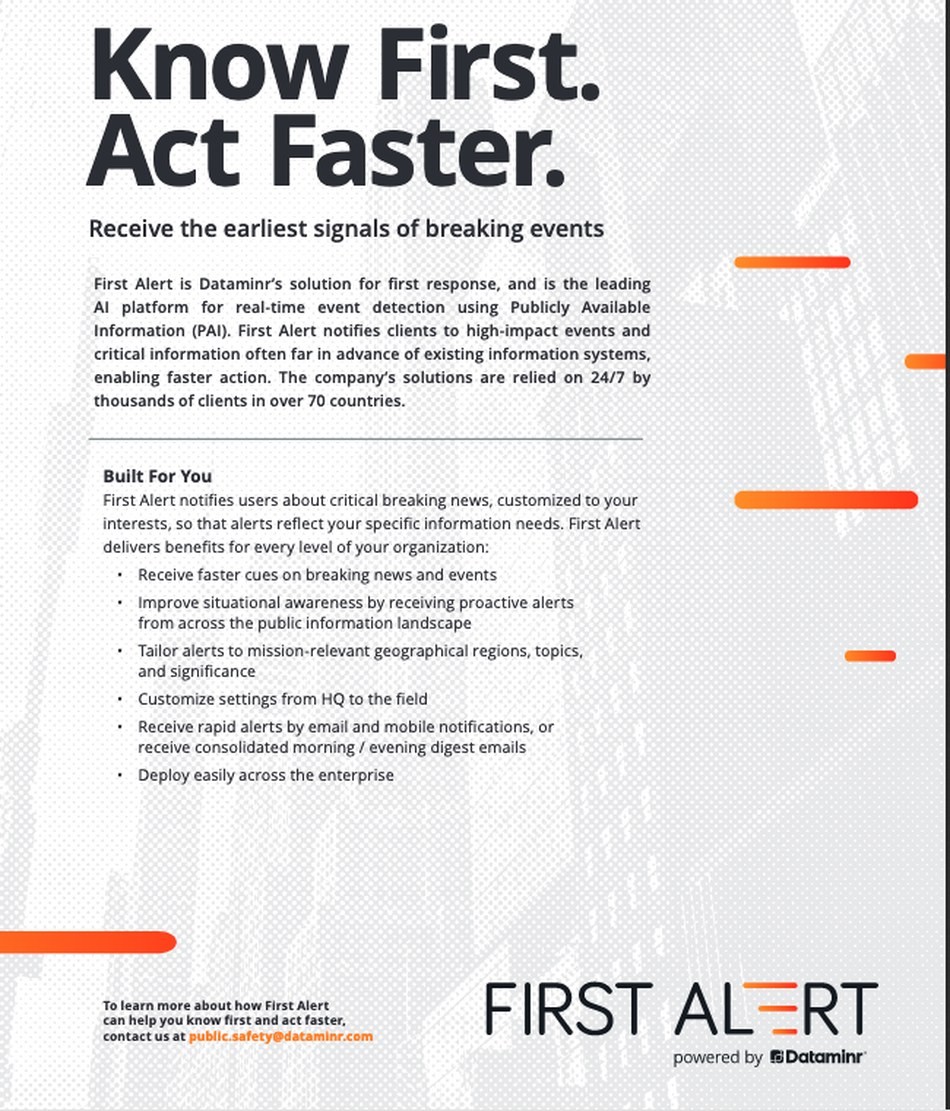Analyzing all your dumb tweets is big business, and for the big data company Dataminr that business just so happened to involve helping police surveil Black Lives Matter demonstrators following the killing of George Floyd.
So reports the Intercept, which on Thursday detailed how the New York-based data company alerted law enforcement to protests across the country. Dataminr, which bills itself as offering a “real-time AI platform [that] detects the earliest signals of high-impact events and emerging risks from within publicly available data,” hoovers up all public-facing Twitter data, quickly digests it, and offers customer-relevant insights.
When the customer happens to be police departments across the country, apparently those insights include tracking constitutionally protected activities like peaceful protest.
The ACLU of Minnesota wasn’t happy with the news, and criticized Twitter for allowing Dataminr access to its data.
“Let us be clear: By allowing this practice, @Twitter is directly endangering protesters,” announced the organization. “These actions aid surveillance and risk exposing people to investigations, watchlists, and state violence for calling attention to injustice and exercising their First Amendment rights.”
Twitter has vocally supported Black activists and the #BlackLivesMatter movement. But that is not enough.
In this fight for racial justice, @Twitter must act decisively to prevent the government from exploiting the platform to surveil and target the company’s users. pic.twitter.com/98wEwsKH4P
— ACLU of Minnesota (@ACLUMN) July 9, 2020
We reached out to Dataminr in an attempt to confirm the Intercept’s report, but received no immediate response. Twitter, on the other hand, had plenty to say.
“We see a societal benefit in public Twitter data being used for news alerting, first responder support, and disaster relief,” wrote a company spokesperson over email. “Twitter prohibits the use of our developer services for surveillance purposes. Period.”
Indeed, Twitter’s developer terms are clear: “We prohibit the use of Twitter data and the Twitter APIs by any entity for surveillance purposes, or in any other way that would be inconsistent with our users’ reasonable expectations of privacy.”
So what happened here? Well, Twitter insists that the data pulled by Dataminr is all public — that is to say, only public-facing tweets — and as such is fair game. Which may be true as far as Twitter’s policies are concerned, but that doesn’t make the Intercept’s findings any more palatable.
“Dataminr meticulously tracked not only ongoing protests, but kept comprehensive records of upcoming anti-police violence rallies in cities across the country to help its staff organize their monitoring efforts, including events’ expected time and starting location within those cities,” reads the Intercept’s report. “A protest schedule seen by The Intercept shows Dataminr was explicitly surveilling dozens of protests big and small, from Detroit and Brooklyn to York, Pennsylvania, and Hampton Roads, Virginia.”
Dataminr, for its part, offers a product called First Alert which the company advertises as “[alerting] first responders to breaking events, enabling the fastest real-time response.”

An add for the Dataminr service First Alert.
Image: BLUELEAKS / DATAMINR

An add for the Dataminr service First Alert.
Image: BLUELEAKS / DATAMINR
It was the First Alert product that reportedly kept law enforcement abreast of protesters’ movements — often, according to the Intercept, explicitly peaceful protesters were monitored in this way.
“We proactively enforce our policies to ensure customers are in compliance and will continue to do so,” concluded the Twitter spokesperson. “We consistently hold ourselves accountable to rigorous standards, including third-party audits of key products and services like Dataminr.”
SEE ALSO: Police used ‘smart streetlights’ to surveil protesters, just as privacy groups warned
And rigorous standards, in theory, are good. Practically, however, when your self-described rigorous standards allow for private companies to enable those who wield violent force against peaceful protesters, they become less so.
